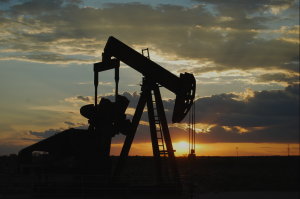 Relative freedom and hydraulic fracturing (fracking) in Texas continue creating business opportunities and attracting capital investment from around the world.
Relative freedom and hydraulic fracturing (fracking) in Texas continue creating business opportunities and attracting capital investment from around the world.
Austria’s largest steel company, Voestalpine, has signed a lease to build a $716 million iron-ore pellet plant in Corpus Christi, Texas. CEO Wolfgang Eder stated, “It would have been impossible to build a comparable plant in the European Union.”
What made it possible to build the plant in Texas? Key factors were the availability of low-cost energy produced by fracking, and a regulatory environment less stifling than that of the European Union.
This plant will be the largest foreign investment ever made by Voestalpine, a manufacturer of steel for airplanes, cars and train tracks. Operations are expected to start in 2016, when 150 people will be employed producing two million tons of iron per year—much of which will be shipped to Europe.
Fracking has also attracted Tianjin Pipe Company, China’s largest seamless steel pipe maker. Through its Houston based subsidiary, TPCO Enterprises Inc., the company will create two thousand jobs during the construction of a $1 billion plant in Gregory, Texas—the largest manufacturing investment ever made by a Chinese company in the United States. Once completed, 600 to 800 people will be employed in the facility producing the seamless steel pipe used in the oilfields of the United States.
Low-cost energy and reliable petrochemicals produced by fracking have also drawn the interest of plastics and chemical companies, such as Dow Chemical, which plans to invest $4 billion in infrastructure in the U.S. Gulf Coast region. The American Chemistry Council states that shale gas could result in “$71 billion in investment and more than 530,000 permanent jobs.”
 In fact, one of the world's three largest producers of polyethylene terephthalate (PET), Italian-based M&G Group, plans to build the world’s largest PET plant in Texas. PET is a thermoplastic polymer resin (in the polyester family) used to make containers for soft drinks, water, cooking oil, and the like. Currently in the permitting stage, the company will invest $900 million, creating three thousand jobs during the construction of two facilities in Corpus Christi. Once completed M&G will have 250 full-time employees.
In fact, one of the world's three largest producers of polyethylene terephthalate (PET), Italian-based M&G Group, plans to build the world’s largest PET plant in Texas. PET is a thermoplastic polymer resin (in the polyester family) used to make containers for soft drinks, water, cooking oil, and the like. Currently in the permitting stage, the company will invest $900 million, creating three thousand jobs during the construction of two facilities in Corpus Christi. Once completed M&G will have 250 full-time employees.
The world has taken notice of the abundance of materials and energy produced by horizontal drilling and hydraulic fracturing in the United States. Where would the economy be without these production-enabling technologies? And where might it be if energy producers were fully free to pursue them?
Like this post? Join our mailing list to receive our weekly digest. And for in-depth commentary from an Objectivist perspective, subscribe to our quarterly journal, The Objective Standard.
Related:
- Energy at the Speed of Thought: The Original Alternative Energy Market
- Shale Gas Is Plentiful; Freedom to Produce It Is Not
Creative Commons Image: Paul Lowry


![[TEST] The Objective Standard](https://test.theobjectivestandard.com/wp-content/uploads/2017/10/logo.png)









